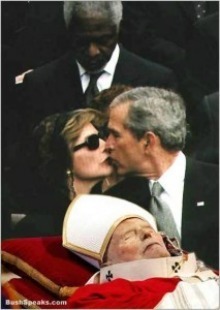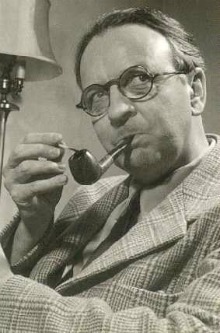Matt Rees's Blog, page 16
July 7, 2011
Writing Tip #93: Real historical charcters in a novel
 I dislike the law and I have little interest in ethics. So here’s a post about the ethics and legality of using real characters in fiction, as I do in my latest novel MOZART’S LAST ARIA. It’s the one time I’ll bother to write about either subject.
I dislike the law and I have little interest in ethics. So here’s a post about the ethics and legality of using real characters in fiction, as I do in my latest novel MOZART’S LAST ARIA. It’s the one time I’ll bother to write about either subject.In a Fringe Magazine review of MOZART’S LAST ARIA, reviewer Scott Wilson notes how much he enjoyed the book. (“This story was extremely well-written and up there with many other great whodunit books. The narrative is both beautiful and historically accurate, as are many other elements of this crime novel. It is obvious that Rees did some pretty extensive research in developing the foundation for this book. I found the pages of the book turning themselves with the ripping read and sense of urgency that the author created with the plot.”)
Thanks, Scott. Reviews don’t get much better than that.
But my novel also touched off another thought in Scott that’s worth looking at in more depth. Here’s what he wrote:
Mozart’s Last Aria is one of those books that amazes me. I don’t know how you can write a fictional novel based on a real person without being sued for slander or defamation etc etc. I mean the concept of using a real, historical figure and adding elements of fiction to make an interesting story has some merit to it and in some cases, such as this book, it makes a great read. But I just don’t understand how you can get sued for plagiarism by using someone else’s song lyrics or stories, but to take a person’s life and write what every the hell you want about it is okay??? Don’t imagine being able to write a novel based on Han Solo or Sherlock Holmes and being able to make millions without it being an issue to anyone else? I’m going to have to do some research into the legalities of writing a fictional novel based on real people for my own curiosity now.
There are a few issues raised in this paragraph. The first is: what’s legal? My understanding, in very blunt terms is: as long as the person is dead, they can be fictionalized.
That’s how you come to have real Hollywood actor Sal Mineo as a gigolo in James Ellroy’s novels. Or Lee Harvey Oswald in Don de Lillo’s “Libra.” Or Virginia Woolf in “The Hours.” If they were still alive, they might’ve sued. Or Mineo would’ve had the mob knee-cap Ellroy, Oswald might’ve assassinated de Lillo, and Woolf may have attempted to beat Michael Cunningham to death with the enormous false nose Nicole Kidman wore in the film version.
But they didn’t. Because they’re dead. Like Mozart. (In fact, my novel is about what really caused his death, so that’d have to be the point.)
So let’s get to the ethics. A fairly silly “outraged” blog on The Guardian website a couple of years ago suggested that “increased” use of real dead famous people by novelists was an ethical issue and that it was the result of the decline of privacy and private space in the age of Twitter, Facebook and My Space (thus revealing that the blogger wasn’t really up on the latest developments with My Space, which has been called the “abandoned theme park of the internet” for years now.) By going inside the heads of famous dead people, novelists reveal themselves to care not a jot for privacy, he writes.
Actually, I agree that the privacy of dead people is an issue of little importance, in a world riven by war, rapine, and investment bankers. There are bigger fish to fry.
Read the rest of this post on my blog The Man of Twists and Turns.
Published on July 07, 2011 04:46
•
Tags:
crime-fiction, han-solo, historical-fiction, mozart-s-last-aria, sherlock-holmes, the-fringe-magazine, the-guardian, writing, writing-tips
June 30, 2011
Writing Tip #93: Walking and plotting
 Readers like to ask writers “Where do you get your ideas?” It’s such a common question at book readings that I’ve noticed writers (on blogs) making fun of people who ask it. Yet it’s rather silly to ridicule someone for asking a question most writers can’t answer themselves.
Readers like to ask writers “Where do you get your ideas?” It’s such a common question at book readings that I’ve noticed writers (on blogs) making fun of people who ask it. Yet it’s rather silly to ridicule someone for asking a question most writers can’t answer themselves.So here’s my answer: I get my best ideas by walking.
Just lately I’ve been plotting my next book, which is going to be a thriller set in Iraq and New York. I’ve done a good deal of thinking about it in my office, standing in front of my computer or slouched in my bean bag. But when I’m in front of the computer, I find myself thinking about what to write for this blog. And on the bean bag I get distracted by the little white polystyrene balls which seem endlessly to leak out of it onto my Iranian kilim.
The best ideas for this new novel have come to me as I walk home from the gym. It’s not because I’m walking through the prettiest part of town. I walk along a busy dual-carriageway linking two other noisy, busy roads. I sweat like a pig, too – I remind you that I live in Jerusalem, which is a mountainous desert town.
But all the way I’m chattering into my digital voice recorder, setting down my ideas. The reason is simple: relaxation and lack of distraction. I have nothing else to do but walk. Nowhere to go but where I’m going. Nothing to see but fast-moving traffic and a deserted sand lot. My mind is free to be creative, because it’s unhindered by anything else. (I’m quite capable of walking and doing something else at the same time, fortunately.)
In my meditation classes, I’ve sometimes practiced a walking meditation. If you pay attention to each step, the way your foot falls, you’ll soon find your mind entirely clear of any distraction. The same thing is happening on my way home from the gym.
Read the rest of this post on my blog The Man of Twists and Turns.
Published on June 30, 2011 09:18
•
Tags:
ideas, iraq, meditation, new-york, plots, thriller, walking-meditation, writing, writing-tips
June 23, 2011
Unpolished Fleming and Paranoid Mankell
 I’ve seen two things in the last week that allowed me to compare something
I’ve seen two things in the last week that allowed me to compare somethingof the way crime writers used to appear in public and their present avatars.
It only made me wish for the good old days even more than I used to.
The comparison is between: a delightful radio chat on the BBC in 1958 between Raymond Chandler and Ian Fleming; and a load of paranoid weirdness from Henning Mankell.
First, Chandler and Fleming. Listen to their talk. I rarely bother listen to
an entire half hour of anything online, but I’m telling you this is
beautiful. Both of them are unpolished as all hell. For anyone who’s been to
a book fair and seen the well-honed wisecracks and calibrated personae of today’s authors, this’ll be refreshing.
When Fleming asks Chandler to explain how a hit is done in America (which
surely seemed like a very dangerous place to the average BBC listener of
half a century ago), gruff old Ray puffs on his pipe and spins an unlikely tale of gunmen brought to New York from that den of iniquity, Minneapolis. It
impresses Fleming so much that he refers to it in summing up the broadcast
as something very enlightening and shocking and underground that Chandler
has given us.
But most of all from Chandler’s side there’s the news that he intended
another Marlowe novel in which the great shamus would be married (see the
end of “Playback”) and, though he’d love his wife, he’d be frustrated by her
friends and the ease with which he lives.
Fleming, meanwhile, is very British and self-deprecating, pointing out
several times that his novels are pale shadows of what Chandler writes. In
turn, Chandler is amazed that Fleming writes a novel in two months during
his annual Jamaica vacation, having never written one faster than three
months himself. He then opines that “you starve 10 years before even your
publisher knows you’re any good.” Amen to that.
This truly beautiful conversation – hearing the voices of these fellows is
priceless in itself – was in stark contrast to Henning Mankell’s appearance
in an Israeli newspaper last week.
The starting point for Mankell’s piece was his deportation from Israel a
year ago. He was among the pro-Palestinian activists aboard a flotilla of
ships headed for Gaza, which was intercepted by Israeli commandoes. Aboard one of the ships, the commandoes and activists fought and nine activists were killed. Mankell was among those brought back to Israel on the boats and then deported.
His article in Ha’aretz last week goes through the story of a Facebook page
opened in his name. It declared support for the Lebanese Islamists of
Hezbollah and other positions he claims not to share. Facebook took the site
down twice at Mankell’s request. Mankell wonders who was behind the Facebook page.
To anyone who’s been in the Middle East, the most obvious answer is: a
Palestinian supporter saw that Mankell was on their side and decided to
hijack his name for some other causes to which he or she thought Mankell
might be inclined. Or at least that they’d be causes to which readers might
assume Mankell was inclined, knowing his position on Palestine.
But no. With a circuitous logic never apparent in his plodding Wallander
novels, Henning tells us that he heard the Israeli government wanted to use
social media to attack its enemies. Is this behind the “Henning Mankell”
Facebook page? Twice he writes: “Who would benefit from this?”
Read the rest of this post on my blog The Man of Twists and Turns.
Published on June 23, 2011 05:46
•
Tags:
bbc, crime-fiction, gaza, gaza-flotilla, henning-mankell, ian-fleming, inspector-wallander, israel, james-bond, palestine, philip-marlowe, raymond-chandler
June 16, 2011
The Honest Tours Guide to Jerusalem
 The New York Times ran a travel article last weekend about things to do in Jerusalem during the Jewish Sabbath when most things are shut. The article was fairly typical of shorter travel writing in that all the experiences described were unlikely to surprise anyone. Eat hummus at the restaurants. Browse for ceramic bowls. Take a hike through lackluster scenery. Yet each item, through no fault of the writer who is a noted foreign correspondent, had to be described as though it would all add up to a thrilling afternoon.
The New York Times ran a travel article last weekend about things to do in Jerusalem during the Jewish Sabbath when most things are shut. The article was fairly typical of shorter travel writing in that all the experiences described were unlikely to surprise anyone. Eat hummus at the restaurants. Browse for ceramic bowls. Take a hike through lackluster scenery. Yet each item, through no fault of the writer who is a noted foreign correspondent, had to be described as though it would all add up to a thrilling afternoon.It got me thinking about all the guff that tourists have to swallow. How often do visitors stream to must-see attractions which are actually unattractive – and which are only worth seeing so you can tell other people you’ve been there. I decided to apply this theory to Jerusalem, a city that’s a major tourist attraction and where I’ve lived 15 years. Here’s the Honest Tours guide to a selection of sites all of which are listed in most guides as delightful spots for tourists:
The Israel Museum: Just completed a $100 million renovation. Ho-hum. Makes you wonder what at least $90 million of the budget went on. But the donations included a major one from the Marc Rich Foundation, so perhaps the whole thing was just a money-laundering scheme. Though the museum has some interesting archeological bits and pieces, give the art galleries a miss unless you thinks a pile of old school desks nailed together in a white room ought to be called contemporary art.
The Old City: I felt deep sympathy for businessmen who suffered during the economic deprivations of the second Palestinian intifada during the last decade. Except for the nasty traders of the Old City. They’ve been fleecing tourists in a particularly mean manner for years and it was time they got a dose of karma. If you like bad hummus and surly service, try the couple of hummus restaurants listed in all the guides as “the best hummus in Jerusalem.”
The Western/Wailing Wall: Prepare to have your mystical communion with the ancient stones interrupted by a guy who looks like he stepped out of Vilna circa 1822. He’ll shove his hand in your face and ask for charity. Not for nothing does Yiddish (which many of these guys speak) have the best word for “sponger” in any language (“schnorrer”). The place is a Mecca for them.
Read the rest of this post on my blog The Man of Twists and Turns.
Published on June 16, 2011 01:45
•
Tags:
dome-of-the-rock, holocaust, honest-tours-guide, israel, israel-museum, jerusalem, marc-rich, mea-shearim, mecca, middle-east, old-city, palestine, temple-mount, wailing-wall, western-wall, yad-vashem
June 15, 2011
Bookgeeks: MOZART'S LAST ARIA and writing music in a novel
 I've a guest post on the UK book blog Bookgeeks today, about how I "wrote the music" for my new Mozart novel MOZART'S LAST ARIA. Here's how the post starts:
I've a guest post on the UK book blog Bookgeeks today, about how I "wrote the music" for my new Mozart novel MOZART'S LAST ARIA. Here's how the post starts:I’ve played music all my life, but I’m no musician. After my initial childhood music lessons I parted ways with the playing of classical music. I’ve been a guitarist and bassist in various rock bands in New York and elsewhere. Less sexily, I played glockenspiel in my high school band.
Still, I knew that if Mozart’s Last Aria, my new historical thriller, was to succeed, I’d have to write convincingly about the great composer’s music. About its structure. Its performance. And the intellect behind it.
In other words, I’d need to imagine myself into the world of true musicians and into the head of the genius who wrote the most stunning music anyone has ever created.
Read the rest of the post on Bookgeeks.
Published on June 15, 2011 05:04
•
Tags:
bookgeeks, crime-fiction, guest-posts, historical-thriller, mozart-s-last-aria, music, nannerl-mozart, wolfgang-mozart
June 3, 2011
Sexy classical music and crime novels
 When Peter Cook admitted to Dudley Moore that he was “turned on by dead Popes,” it was a satire on those among us who’re so bored by their lives as to be infinitely suggestible. Thus a dead pope lying on a catafalque in white robes looks “at peace, at rest, and ****ing fanciable.”
When Peter Cook admitted to Dudley Moore that he was “turned on by dead Popes,” it was a satire on those among us who’re so bored by their lives as to be infinitely suggestible. Thus a dead pope lying on a catafalque in white robes looks “at peace, at rest, and ****ing fanciable.”The joke, of course, is that no one could imagine the Pope as a sexual object, whether alive or dead. The same might be thought to be true of classical musicians. While Shakira shakes her “fanciable” ass on every video, classical musicians are supposed to be much stuffier.
However, during the research for my new historical thriller MOZART’S LAST ARIA I discovered that the sexiest performers today are not the booty-shaking R’n’B divas, nor the pouting rockers (none of them has ever been able to compete with Joan Jett.) They’re the opera singers and clarinetists and pianists.
Followers of my blog The Man of Twists and Turns will have seen a couple of videos featuring the music from MOZART’S LAST ARIA performed by current musicians. I cite them here to prove my point. Check out Diana Damrau and tell me that when you hear this beautiful blonde Bavarian singing Mozart (as she does on her homepage), you don’t feel a stirring in areas you might have thought were as dormant as a dead Pope. She’s also evidence that the days of the fat lady singing are over. Opera divas are quite gorgeous these days.
Or there’s the Israeli clarinetist Sharon Kam who appears in a video on my blog playing another of the pieces from my novel. A prominent performer around Europe, she’s much more expressive on stage in her body movements than most soloists. I will stop here before I get into further Cook-and-Moore territory with comments about the shape of the clarinet and where the soloist places it… (And after all Spike Milligan’s orchestral penis substitute was a different woodwind which he dubbed “Pink Oboe.”)
This is all more than idle comment on a few good-looking women, of course. There’s an important artistic point to be made. And now that I’ve given you links to what Pete and Dud would’ve called “the crumpet,” I shall make that artistic point.
Read the rest of this post on my blog The Man of Twists and Turns.
Published on June 03, 2011 03:08
•
Tags:
ad-nauseam, bbc, classical-music, crime-fiction, dead-popes, diana-damrau, dudley-moore, historical-fiction, joan-jett, mozart-s-last-aria, nannerl-mozart, orit-wolf, peter-cook, sharon-kam, spike-miligan, vienna, wolfgang-amadeus-mozart, wolfgang-mozart
June 2, 2011
Podcast: Arab Spring short story in Syria
I'm launching my new Podcast called The Man of Twists and Turns today. It'll include interviews with writers and discussions of my own creative process for my books about Palestinian detective Omar Yussef, Mozart and Caravaggio. It’s a podcast about writing for writers and for readers who love good writing. In this first podcast I read my new Omar Yussef short story set in Syria during the current government crackdown on freedom demonstrators.
Published on June 02, 2011 03:29
•
Tags:
arab-politics, arab-spring, bashar-al-assad, crime-fiction, damascus-trance, middle-east, omar-yussef, palestine, palestinians, podcasts, short-story, syria
May 18, 2011
Long gestation and the crime novel
 Crime novelists generally write a novel a year. It’s what publishers want. Some big writers—and I mean, 25 million books sold—have told me their publishers and agents complain that if they don’t produce a book a year their readers will forget them.
Crime novelists generally write a novel a year. It’s what publishers want. Some big writers—and I mean, 25 million books sold—have told me their publishers and agents complain that if they don’t produce a book a year their readers will forget them.In the case of such writers, some of those 25 million may have degenerative diseases and others may be plain stupid, but in all likelihood about 24 million of them will remember a writer whose book they read, let’s say, two years ago.
Nonetheless the expectation remains that a book a year will be forthcoming. So do all crime writers have one good idea a year? Or do ideas take longer to gestate? And if they do, where does that leave the writer who needs to get words on paper right now.
In the case of my latest novel MOZART’S LAST ARIA (out now in the UK, but not until November in the US), it was eight years between the initial idea and publication. A most un-crime-fiction-like timescale.
It began with a trip I took with my wife into the Salzkammergut, to find peace among the mountains and lakes at a time when we were living through the Palestinian intifada in Jerusalem. There we stumbled across the remote house where Mozart’s sister Nannerl had lived and a fascination with her was born.
It was nurtured through future visits to Vienna, to Prague (where Mozart’s operas are still performed in the Estates Theater, scene of his “Don Giovanni” premier), dinners with Maestro Zubin Mehta at which we discussed our mutual admiration for the great composer (though it shan’t surprise you to learn that his understanding of the music is on a somewhat, ahem, more elevated level than mine…)
Read the rest of this post on my blog The Man of Twists and Turns.
Published on May 18, 2011 23:55
•
Tags:
austria, brooklyn, crime-fiction, detective-fiction, evan-fallenberg, intifada, jerusalem, little-palestine, mozart-s-last-aria, nannerl-mozart, palestine, piano, prague, research, salzkammergut, vienna, wolfgang-amadeus-mozart, wolfgang-mozart, writers, zubin-mehta
May 17, 2011
Inspiration–and laughter–for the ladies: Ghada Abdel Aal’s Writing Life

When she was in her early twenties, Egyptian writer Ghada Abdel Aal began the complicated process of seeking a spouse. It involved meetings in parental living rooms over awkward glasses of tea. On one such occasion her potential groom spent his time screaming at a soccer game on tv. Another turned out to have a couple of wives already, and a would-be husband who was also a policeman started investigating her background for criminality or other unwanted elements. She turned to blogging about these meetings and discovered that other Egyptian women had similar experiences. Since then, her blog has become a huge success around the Arab world; her book I Want to Get Married has been published in several languages (it came out last year in English) and has been adapted for television. Ghada, a religious Muslim who covers her hair and who is quite hilariously funny in person and in her writing, has had the kind of cultural impact that makes her countrymen leap around with excitement when they meet her (as I can attest from having seen her at a book festival in an Arab country not long ago.) Here’s what she told me about how she came to write her book and its impact on her life:
How long did it take you to get your book published?
I got the book deal 18 month after I started the blog
Would you recommend any books on how to write?
I'm now reading a very interesting book "A Novel in a Year" which is a one year writing workshop for beginners or for people who are suffering during the journey of writing their novel, written by Louise Doughty.
What’s a typical writing day?
I usually save 4-5 hours a day for writing, I start at 3 am & end at 8 am. Most of this time of course gets wasted staring at the ciling or out of my window. But this is the time I force myself to sit at my desk for the purpose of writing
Do you think more young writers will be “discovered” because they write popular blogs, as you did?
A lot of them have been discovered because of my book, as it showed the publishers that you can be a blogger, you can be young and still be a best seller author
How would you describe what your book is about? And of course tell us why it’s so great?

My book is talking about a girl who is about to be thirty, she is going through this process that we call "living room marriages " and faces a bad suitor everyday. The general idea is showing the pressure that women get from the society to get married before reaching thirty, which is the expiration date of Egyptian girls. I guess it was successful because it spoke out about a problem that all girls face but no one usually talks about. It also does that in a satirical way, which is very popular in Egypt today.
Are you still looking for a husband? Or are you less interested, now that you’re a popular writer?!
I'm not allowed to "look," just to "wait." Well , it's not my first priority anymore, but I would like to have children one day and getting married is the only way to do that.
Read the rest of this post on my blog The Man of Twists and Turns.
Published on May 17, 2011 23:41
•
Tags:
arab, bloggers, blogs, egypt, ghada-abdel-aal, i-want-to-get-married, interviews, middle-east, muslim, north-africa, women, writers, writing-life
May 13, 2011
Author's dilemma: What's next?
 Damn, I’ve done it again. Finished a novel, sent it to my publisher…Oh, dear. What’s next?
Damn, I’ve done it again. Finished a novel, sent it to my publisher…Oh, dear. What’s next?If I write that this is THE authorial dilemma, I’m sure I’ll get emails from writers who just can’t finish their book, or from readers who’d like to be writers telling me that I shouldn’t be complaining about such a pleasant quandary.
So let me say that I’m not complaining. Just expressing the slight anxiety that nibbles around my edges when I’m not actually writing, the fear that I’ll lose focus. Because when that happens, the next thing I know I’m growling at my son, driving too fast, and losing my temper in the supermarket checkout line.
You see, I have to be doing something creative or I become a little less human. You might say that I become depressed, I suppose, which is why I find myself infected with some degree of anger. (If, as Freud said, depression is frozen anger, why is it that when I get depressed I also get angry…? Am I only half depressed? Or thawing out?)
So when two weeks ago I sent off the manuscript of my Caravaggio novel to my London publisher, I determined not to fall into the ills that have afflicted me to differing degrees between each book. My wife reminded me to “write something.” Even my three-year-old suggested, “Daddy, you go and work.”
In some ways it was good timing. My new book, MOZART’S LAST ARIA, was coming out in the UK. So I devoted last week to the kind of online publicity activities my generation of writers has to perform, to one degree or another. Video trailers, video readings, blog posts, links and “extra features” deluged my Facebook friends, my Twitter followers, my blog followers.
But those things won’t cut it creatively. First, they aren’t the kind of “creative” activity I’m talking about. Second, you don’t see the results right away. Spend a day networking socially and at the end of it you feel like you’ve been at a very long cocktail party: you might have a few business cards in your pocket, but your face hurts from (virtual) smiling and you’re unconvinced that it’ll sell any books for sure.
So I was lucky that I had a couple of genuinely creative things to keep me rolling. A pair of short scripts for a nascent film project. A short story about my Palestinian detective Omar Yussef (which I posted online free yesterday). This was just about enough to see me through the between-books blues.
Read the rest of this post on my blog The Man of Twists and Turns.
Published on May 13, 2011 00:58
•
Tags:
between-novels, caravaggio, caravaggio-s-madonna, crime-fiction, mozart-s-last-aria, omar-yussef, palestine, palestinians, writing



